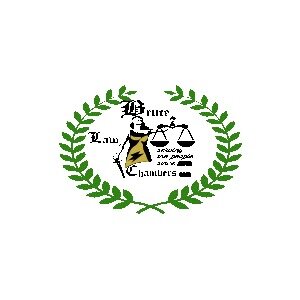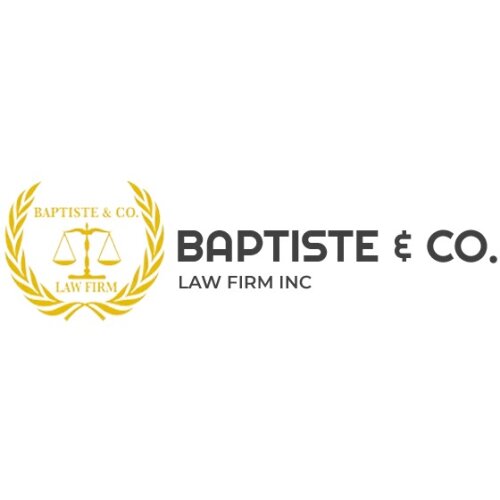Best Financial Services Regulation Lawyers in Saint Vincent and the Grenadines
Share your needs with us, get contacted by law firms.
Free. Takes 2 min.
Or refine your search by selecting a city:
List of the best lawyers in Saint Vincent and the Grenadines
About Financial Services Regulation Law in Saint Vincent and the Grenadines
Financial Services Regulation in Saint Vincent and the Grenadines is designed to ensure the integrity, stability, and efficiency of the financial system. Given its status as an offshore jurisdiction, the country attracts a variety of financial service providers, including banks, insurance companies, and firms dealing in securities and investments. The main objective is to protect consumers and maintain market confidence through comprehensive oversight and legislative frameworks. The Financial Services Authority (FSA) is the principal regulatory body responsible for issuing licenses, supervising financial entities, and enforcing compliance with relevant laws and regulations.
Why You May Need a Lawyer
There are several situations where legal assistance may be essential when dealing with financial services regulation in Saint Vincent and the Grenadines:
- Setting up a financial service company: Navigating the legal requirements to obtain licenses and meet compliance standards.
- Compliance issues: Ensuring ongoing compliance with local laws to prevent penalties or legal action.
- Dispute resolution: Handling conflicts or litigation involving financial transactions or regulations.
- Regulatory changes: Interpreting and implementing new regulatory measures or updates.
- Fraud or misconduct allegations: Defense against accusations or investigations related to financial activities.
Local Laws Overview
The legal framework governing financial services in Saint Vincent and the Grenadines includes several key pieces of legislation:
- International Business Companies (IBC) Act: Governs the formation and regulation of international business companies.
- Mutual Funds Act: Provides a regulatory framework for mutual funds and their managers.
- Banking Act: Regulates the operations and management of banks to ensure financial stability.
- Insurance Act: Sets out the regulatory guidelines for insurance companies operating in the country.
- Financial Services Authority (FSA) Act: Establishes the powers and functions of the FSA in overseeing the financial services sector.
Frequently Asked Questions
What is the role of the Financial Services Authority in Saint Vincent and the Grenadines?
The Financial Services Authority (FSA) oversees the registration, regulation, and supervision of financial businesses and transactions to ensure a stable and reliable financial system.
Do I need a license to operate a financial service company in Saint Vincent and the Grenadines?
Yes, a license is required to legally operate financial services such as banking, insurance, or investment management. The FSA handles the licensing process.
What are the penalties for non-compliance with financial regulations?
Penalties can include fines, revocation of licenses, and even criminal charges, depending on the severity and nature of the non-compliance.
How can I verify if a financial service provider is licensed?
The FSA maintains a registry of all licensed financial service providers, which can be accessed by the public to verify the legitimacy of a provider.
What are offshore financial services, and are they legal in Saint Vincent and the Grenadines?
Offshore financial services are provided to clients who reside outside the jurisdiction where the service is offered. They are legal in Saint Vincent and the Grenadines, but must comply with regulatory standards.
How often do financial regulations change in Saint Vincent and the Grenadines?
Regulations can change periodically in response to global trends, economic shifts, and policy updates. Regular monitoring of FSA announcements is advisable.
What should I do if I suspect fraud in a financial service transaction?
If you suspect fraud, report it immediately to the FSA and consider seeking legal counsel to understand your rights and possible recourse.
Are there specific regulations for fintech companies?
While fintech operations fall under general financial regulation, specific guidance may be provided by the FSA on a case-by-case basis.
Can international legal firms assist with financial services regulation issues in Saint Vincent and the Grenadines?
Yes, international legal firms with expertise in offshore financial services can provide valuable assistance, but they may need to partner with local legal experts.
What are the legal requirements for reporting financial activities?
Financial entities are required to maintain accurate records and report suspicious or high-value transactions to the FSA, per anti-money laundering laws.
Additional Resources
Consider the following resources for further information and assistance:
- Financial Services Authority (FSA): The main regulatory body providing detailed guidelines and updates.
- Government of Saint Vincent and the Grenadines: Official publications and legislative documents relating to financial services.
- Local Legal Firms: Engage local legal practitioners with experience in financial regulations for tailored advice.
- International Organizations: Entities like the International Monetary Fund (IMF) and World Bank may offer insights into best practices and compliance standards.
Next Steps
If you require legal assistance with financial services regulation in Saint Vincent and the Grenadines, consider taking the following steps:
- Identify the specific area of regulation or compliance where assistance is needed.
- Consult with a local legal expert who specializes in financial services law to explore your options.
- Gather all relevant documentation and information to support your legal consultation process.
- Stay informed about any new developments in regulations by regularly checking updates from the Financial Services Authority.
Lawzana helps you find the best lawyers and law firms in Saint Vincent and the Grenadines through a curated and pre-screened list of qualified legal professionals. Our platform offers rankings and detailed profiles of attorneys and law firms, allowing you to compare based on practice areas, including Financial Services Regulation, experience, and client feedback.
Each profile includes a description of the firm's areas of practice, client reviews, team members and partners, year of establishment, spoken languages, office locations, contact information, social media presence, and any published articles or resources. Most firms on our platform speak English and are experienced in both local and international legal matters.
Get a quote from top-rated law firms in Saint Vincent and the Grenadines — quickly, securely, and without unnecessary hassle.
Disclaimer:
The information provided on this page is for general informational purposes only and does not constitute legal advice. While we strive to ensure the accuracy and relevance of the content, legal information may change over time, and interpretations of the law can vary. You should always consult with a qualified legal professional for advice specific to your situation.
We disclaim all liability for actions taken or not taken based on the content of this page. If you believe any information is incorrect or outdated, please contact us, and we will review and update it where appropriate.
Browse financial services regulation law firms by city in Saint Vincent and the Grenadines
Refine your search by selecting a city.











